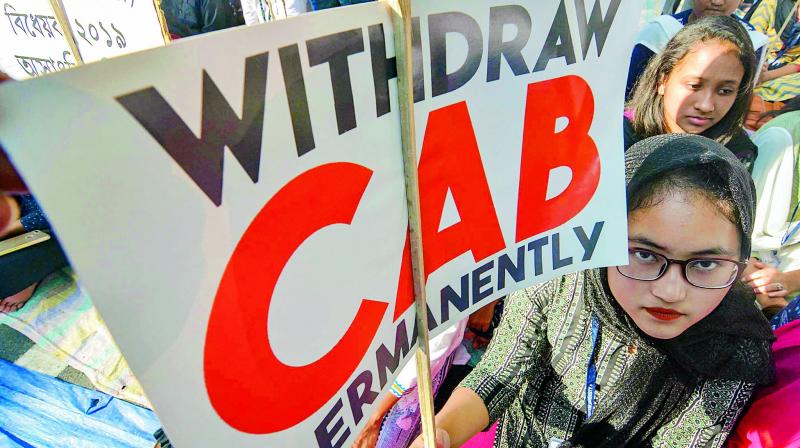Govt passes CAB in RS with some ‘secular’ help

The Constitution (Amendment) Bill, which now only awaits the President’s signature to become law, will distort the fundamental basis of Indian citizenship by subjecting it to the “religious test” and conceptually take it closer to Pakistan’s idea of citizenship, owes not a little to the meeting of unlike poles.
In the decade before 1947, the Hindu Mahasabha formed coalition governments with the Muslim League in the provinces and at the Centre whenever the Congress, then in the full flow of its campaign to end British rule, quit from government to protest a British policy or political stance.
Placing themselves at the service of the empire helped the two communal outfits increase their equity with the colonial government. An analogous situation has arisen in our own era. The BJP-RSS, which traces its ideological foundations to Veer Savarkar’s thoughts, has deftly combined with some “secular” parties to belittle the country’s Constitution.
The CAB cleared the Rajya Sabha on the strength of the votes of the JD(U), BJD, AIADMK, YSR Congress and TDP. All except the JD(U) enjoy varying degrees of support in their respective states, with the BJD, AIADMK and YSR Congress running the state governments in Odisha, Tamil Nadu and Andhra Pradesh.
In backing the CAB, these parties were evidently pressured by the BJP government at the Centre, which is widely seen to use intimidation to deal with recalcitrance. Some day these parties might emerge from the BJP’s stranglehold and hold their own. But this is not the case with the JD(U).
Its leader Nitish Kumar, Bihar’s chief minister, now appears completely under the BJP's thumb, as the two run Bihar’s coalition government. The JD(U)’s independent existence as a party, secular or otherwise, may now be severely compromised. In order to remain in power, Mr Kumar has shown a spectacular capacity to dance to the BJP’s tune.
It’s noteworthy, in contrast, that Shiv Sena, until recently the BJP’s oldest ally, did not vote with the government on the CAB in the Rajya Sabha. The change in the Sena’s stance doubtless owes to its instinct of self-preservation. In Maharashtra, the government led by its supremo Uddhav Thackeray crucially depends on the Congress for survival. It is early days yet, but an intriguing question is being thrown up. Are we seeing a process of moderation and change in the makeup of a regional party that wore Hindutva on its sleeve as its competition with the BJP for voteshare in Maharashtra gained in intensity?
Other than the BJP’s “secular” friends in the Rajya Sabha, the Opposition held together in the Upper House to oppose the CAB. These parties plan to challenge the amended law in the Supreme Court. In light of the Supreme Court’s stance on Kashmir and Ayodhya, it may be unrealistic to place trust in the wisdom of our highest judges to preserve the spirit of the Constitution. The CAB’s opponents need to have the imagination to deal with the question politically.

